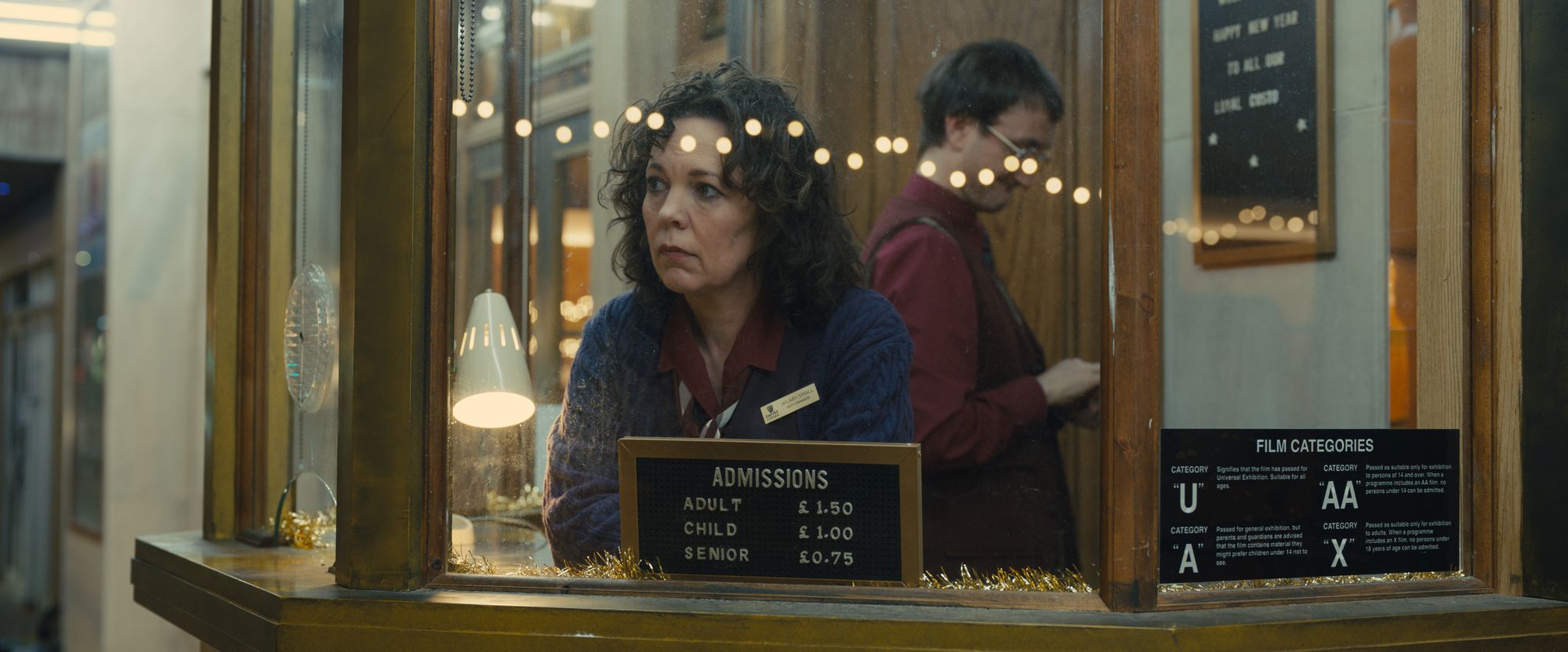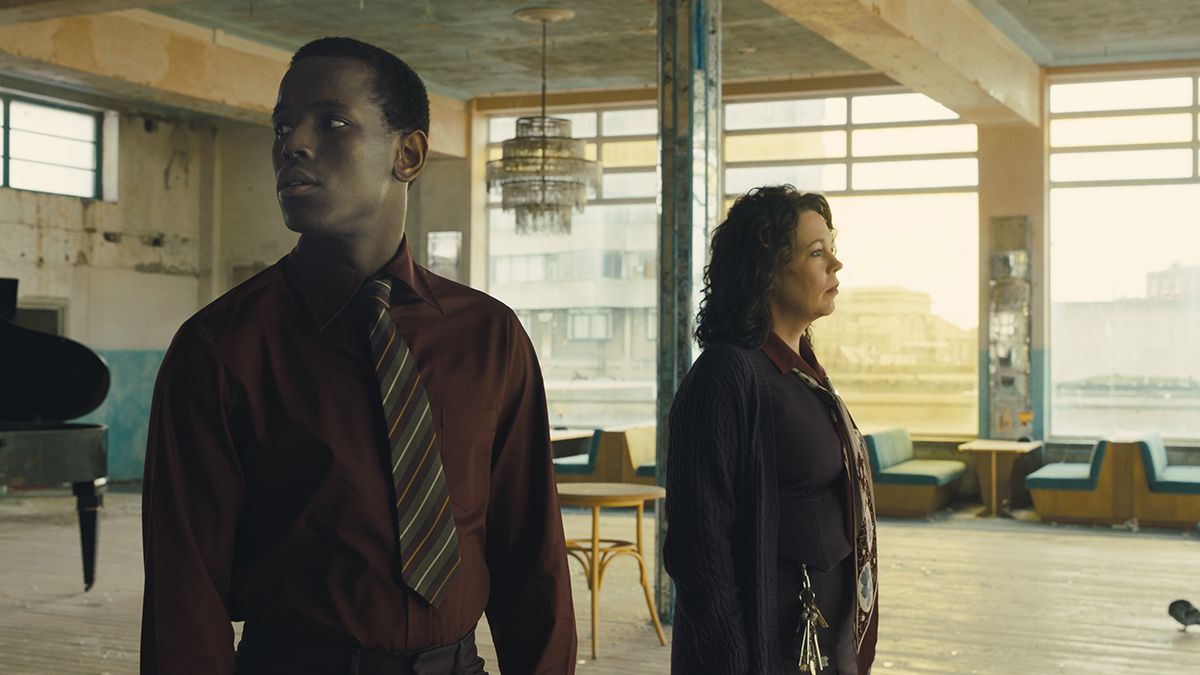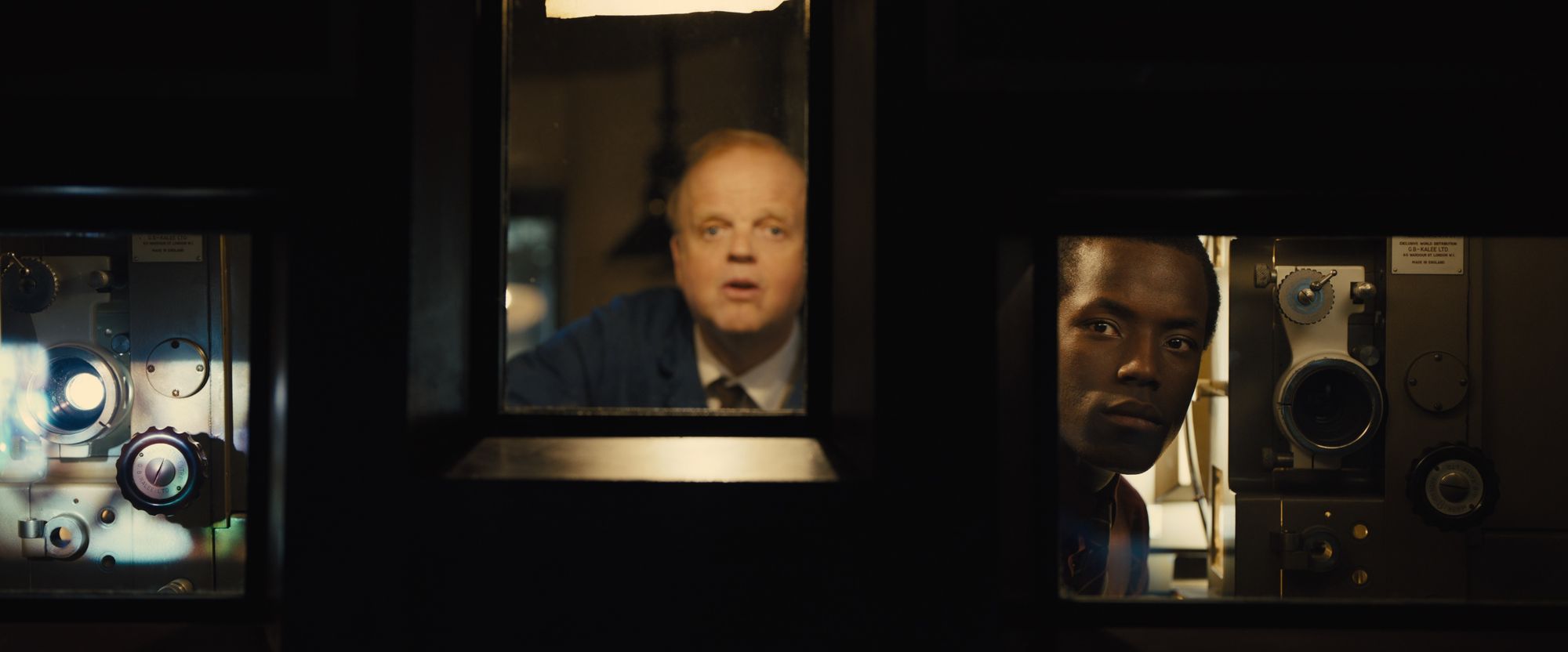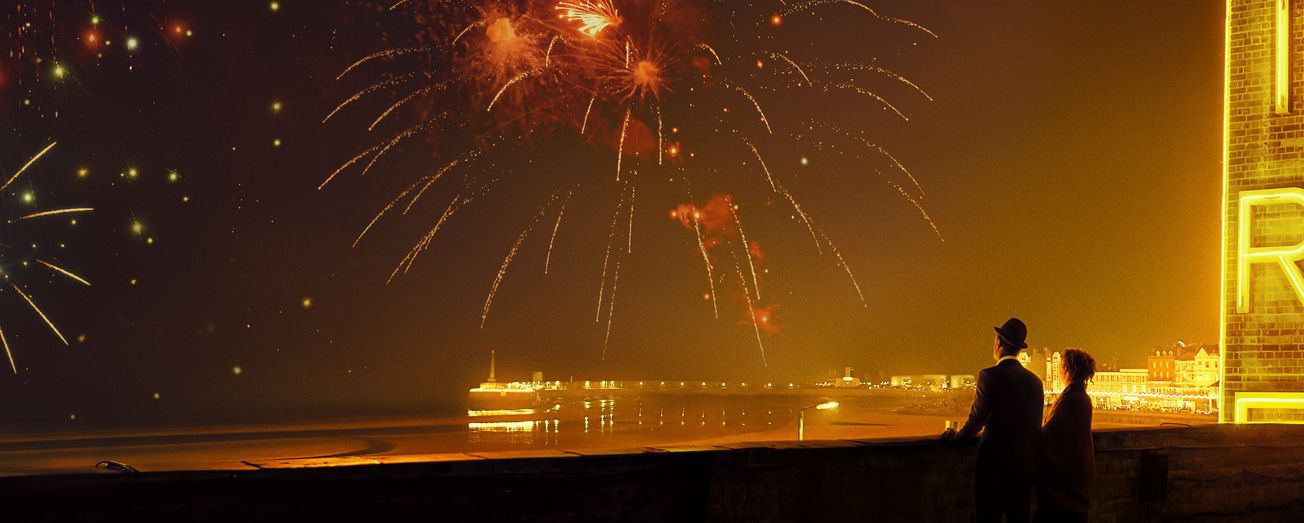By Tara de Mel, Second year, English and Philosophy
Sam Mendes’ Empire of Light (2022) has been heralded as ‘a love letter to cinema’, with Mendes drawing upon his own childhood and the mental health struggles of his mother to craft his first solo-written screenplay. Whilst there are moments of warmth and tenderness within this film, it sadly fails to connect with audiences in its attempt to explore too many heavy themes without adequate depth and originality to fully capture our attention.

Set in the Empire Cinema, a fading picture palace on the south coast of England circa 1980, the film follows the relationship between Hilary Small (Olivia Coleman), the cinema’s duty manager, and Stephen (Michael Ward), a young new employee.
Hilary lives largely as a recluse, quietly struggling with a psychological disorder that leads her to bouts of fury and the resurfacing of past traumas; Stephen is a 20-something-year-old black man in a country that hasn’t quite accepted him.
The two begin a relationship, seemingly drawn to each other’s despair, finding solace in the cinema’s derelict upper floors and (almost comically) ruminating on the life of a poor little pigeon with a broken wing.

There is much to love about this film, including veteran cinematographer Roger Deakins’ dazzling tableaux of seaside promenades and art deco interiors. In his sixth collaboration with Mendes, Deakins's striking set design manages to evoke the glamour of cinema’s golden age yet maintains the melancholic atmosphere integral to the overall lost-soul feel of the film. The magical and sometimes wonderfully ironic score by Trent Reznor and Atticus Ross re-enforces the film’s quiet beauty.
This beauty is unfortunately let down by a mediocre script full of one-dimensional characters and an over-reliance on heavy-handed metaphors. The relationship between Hilary and Stephen never feels entirely convincing, as they seem more like vehicles to uphold the film’s themes than fully fleshed-out characters to which an audience can connect.
Ward is charming, and Coleman is glorious in capturing Hilary’s downward spiral, but neither could have done enough to reconcile this major disconnect. The script tries to tackle so much but ends up doing little.

That is not to say that themes of racial and sexual inequality, mental health, loneliness, and generational trauma cannot be explored within a single script, but it is the lack of cohesion between them in Empire of Light which ultimately lets the film down.
Late additions to the story, such as Stephen’s mother and ex-girlfriend, as well as projectionist Norman’s (Toby Jones) regret-filled past, only add to the convoluted multitude of ideas that are in want of greater depth in order to contribute meaningfully to the plot.
With some very memorable scenes and a hugely competent ensemble cast, Empire of Light is well-intended and entertaining. However, its flimsy attempt at intersectionality and clumsy creation of puzzle pieces that don’t quite fit together make this a film that just misses the mark. The overall intended message of the film of the unifying magic of cinema seems lost in the rubble.
Featured Image: by Roger Deakins, courtesy of IMDB
What did you make of Sam Mendes' trip down memory lane?









